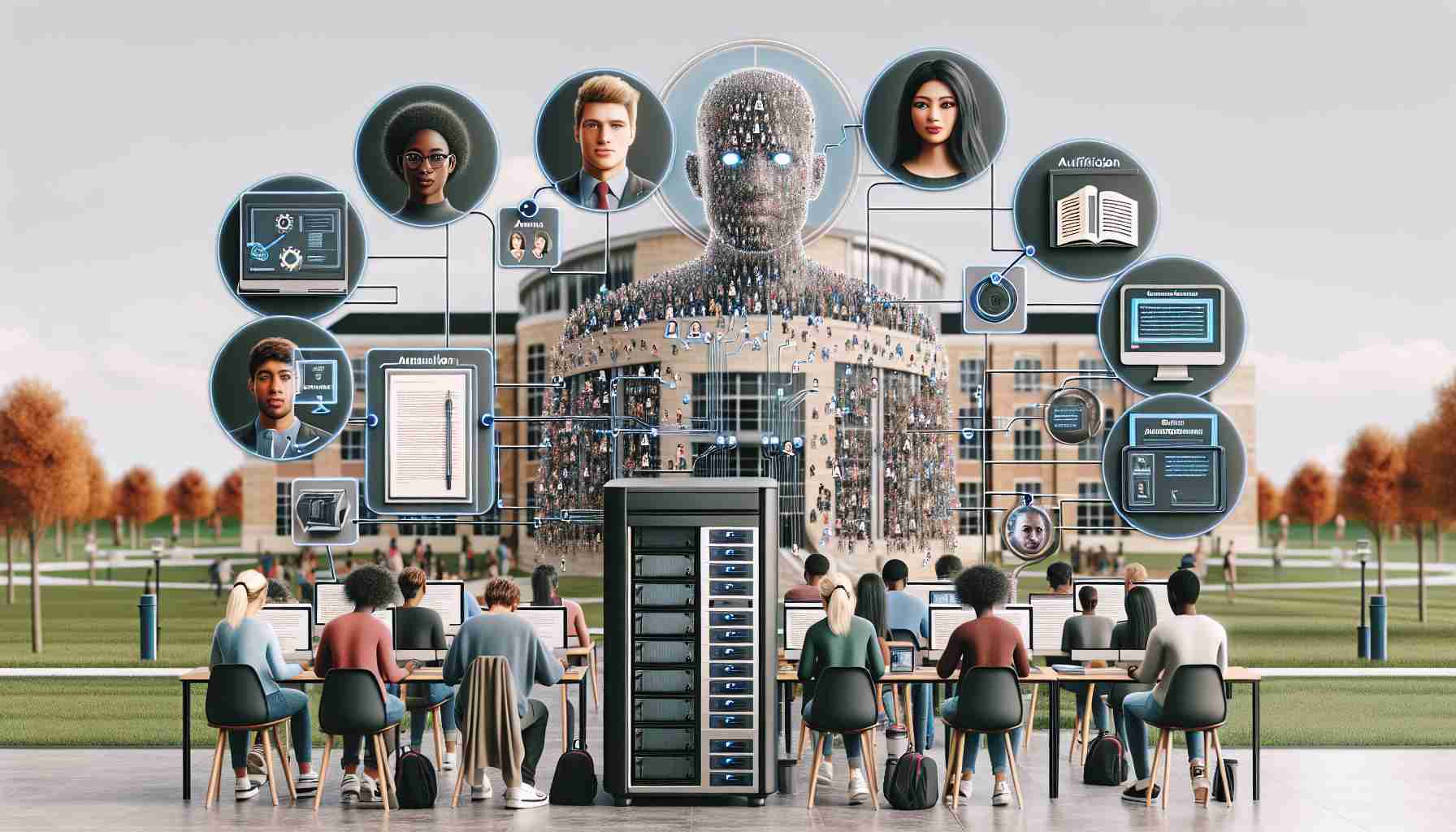Artificial intelligence (AI) has become a prominent topic of discussion at the University of Missouri (MU), as the institution recognizes its potential and implications. The MU Office of Academic Integrity, now jokingly referred to as the “Office of AI,” has witnessed this shift and is actively incorporating AI-related provisions into the university’s rules and regulations.
While AI has the potential to revolutionize medical and scientific research, it also presents challenges in maintaining academic integrity. The use of AI in student assignments without instructor permission is strictly prohibited, ensuring that AI cannot be utilized for cheating or plagiarism. However, the effectiveness of AI detectors in identifying such violations remains uncertain.
Ben Trachtenberg, Director of the MU Office of Academic Integrity, emphasized the importance of discerning between AI-generated work and AI-assisted work. Instructors should rely on evidence demonstrating a student’s lack of knowledge in a particular subject rather than solely suspecting AI usage. While Trachtenberg acknowledges the significance of AI, he aims to strike a balance between embracing its potential and upholding academic integrity.
To explore AI’s role in education, MU is establishing an AI Task Force dedicated to examining its use in teaching and promoting AI literacy among students. This task force will also address ethical concerns surrounding the integration of AI in the academic setting.
Tom Warhover, Chairman of the Faculty Council, expressed the urgency of forming the AI Task Force and expects swift progress in this endeavor. The MU Office of Academic Integrity, in coordination with faculty members, actively investigates cases related to cheating, plagiarism, and the unauthorized use of artificially-generated content. Nevertheless, the office strives to adopt an approach that focuses on education rather than punitive measures.
Recognizing that some students may be unaware of proper citation practices or collaboration guidelines, Trachtenberg highlights the importance of fostering strong relationships between faculty and students. When students feel a connection with their instructors, they are less likely to engage in dishonest practices.
The University of Missouri is attuned to the potential of AI while simultaneously ensuring that academic integrity remains a top priority. By navigating the intersection of AI and education with careful consideration, MU aims to equip students with the necessary skills to thrive in an AI-driven future while upholding the values of integrity and honesty.
FAQ:
1. What is the MU Office of Academic Integrity?
The MU Office of Academic Integrity is an office within the University of Missouri that oversees academic integrity matters, including issues related to cheating, plagiarism, and the unauthorized use of AI-generated content.
2. Can AI be used for cheating or plagiarism at MU?
No, the use of AI in student assignments without instructor permission is strictly prohibited at MU to prevent cheating or plagiarism.
3. Are AI detectors effective in identifying violations?
The effectiveness of AI detectors in identifying cheating or plagiarism remains uncertain. However, the MU Office of Academic Integrity actively investigates such cases in collaboration with faculty members.
4. What is the difference between AI-generated work and AI-assisted work?
AI-generated work refers to work that is entirely created by artificial intelligence, while AI-assisted work involves human collaboration with AI technology.
5. How is MU exploring AI’s role in education?
MU is establishing an AI Task Force dedicated to examining AI’s use in teaching and promoting AI literacy among students. This task force will also address ethical concerns related to the integration of AI in the academic setting.
6. What is the focus of the MU Office of Academic Integrity?
The MU Office of Academic Integrity aims to focus on education rather than punitive measures when addressing cheating, plagiarism, and the unauthorized use of AI-generated content.
7. Why is fostering strong relationships between faculty and students important?
Fostering strong relationships between faculty and students is important to prevent academic dishonesty. When students feel connected to their instructors, they are less likely to engage in dishonest practices.
Definitions:
– Artificial intelligence (AI): The simulation of human intelligence in machines that are programmed to think and learn like humans.
– Academic integrity: The ethical practice of honesty, integrity, and responsible conduct in academic settings, including adherence to proper citation practices and guidelines.
Suggested Related Links:
– University of Missouri Website: Official website of the University of Missouri.
– About MU: Information about the University of Missouri and its mission.
– Academics at MU: Details about the academic programs and departments at the University of Missouri.
– MU Office of Academic Integrity: Official page of the MU Office of Academic Integrity, providing resources and information on academic integrity policies.
The source of the article is from the blog elperiodicodearanjuez.es

